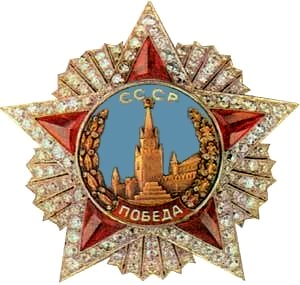
Allied Commission
Following the termination of hostilities in World War II, the Allies were in control of the defeated Axis countries. Anticipating the defeat of Germany and Japan, they had already set up the European Advisory Commission and a proposed Far Eastern Advisory Commission to make recommendations for the post-war period. Accordingly, they managed their control of the defeated countries through Allied Commissions, often referred to as Allied Control Commissions (ACC), consisting of representatives of the major Allies.
Italy[edit]
Under the provisions of Article 37 in the Armistice with Italy Instrument of Surrender, September 29, 1943, the Control Commission for Italy was established on November 10, 1943, and was dismantled on December 14, 1947, following the conclusion of the Italian Peace Treaty at the Paris Peace Conference in 1947.
The Armistice Agreement with Rumania, signed on September 12, 1944, established, among others, the following:
In line with Article 14 of the Armistice Agreement two Romanian People's Tribunals were set up to try suspected war criminals. The Treaty of Peace with Romania was signed on February 10, 1947, and entered into force on September 15, 1947.[1]
The commission, placed under the nominal leadership of Soviet general Rodion Malinovsky (represented by Vladislav Petrovich Vinogradov), was dominated by Red Army leaders.
The commission was one of the tools used by the Soviet Union to impose communist rule in Romania. Soviet occupation forces remained in Romania until 1958 and the country became a satellite state of the Soviet Union, joining the Warsaw Pact and COMECON.
The Armistice Agreement with Bulgaria October 28, 1944
The United States representatives on the Commission for Bulgaria were Major General John A. Crane (October 28, 1944 – March 1, 1946) and Major General Walter M. Robertson (March 1, 1946 – September 10, 1947).
The United States representatives on the Commission for Hungary were Major General William S. Key (January 20, 1945 – July 4, 1946) and Brigadier General George H. Weems (July 5, 1946 – September 15, 1947).
Germany[edit]
The Allied Control Council (ACC) for Germany oversaw the Allied Occupation Zones in Germany. The ACC was established by agreement of June 5, 1945,[6] supplemented by agreement of September 20 of that same year, with its seat in Berlin. Its members were Great Britain, France, the Soviet Union, and the United States of America. Decisions could only be made by consensus. From the outset; proceedings were heavily compromised through systematic non-cooperation from the French representatives. The French had been excluded (at American insistence) from the Potsdam Conference and consequently refused to recognise any obligation for the ACC to be constrained by the Potsdam agreement. In particular, they resisted all proposals to establish common policies and institutions across Germany as a whole, and anything that they feared might lead to the emergence of an eventual unified German government.[7] Cooperation within the ACC finally broke down completely when the Soviet representative withdrew on March 20, 1948. Until 1971, the ACC did not meet again, and the stage was set for the partition of Germany into two states.
After the breakdown of the ACC, the British, French and United States of America occupation zones and the British, French and United States of America sectors in Berlin were governed by the Allied High Commission with membership from Britain, France, and the United States, whilst the Soviet Zone and Soviet sector of Berlin were governed by the Chairman of the Soviet Control Commission, later the Soviet High Commissioner. The role of the High Commissioners ceased when the three western zones (other than Berlin) and the Soviet Zone (other than in Berlin) acquired de facto sovereignty as respectively the Federal Republic of Germany ('West Germany') and the German Democratic Republic ('East Germany') (subject to certain restrictions).
The ACC convened again in 1971, leading to agreement on transit arrangements in Berlin. During the talks for unification of Germany in late 1989, it was decided to convene the ACC again as a forum for solving the issue of Allied rights and privileges in Germany. The disbanding of the ACC was officially announced by the Two Plus Four Agreement of September 12, 1990, effective as of March 15, 1991. The ACC last met on 2 October 1990, on the eve of German Reunification.
Japan[edit]
It was agreed at the Moscow Conference of Foreign Ministers, and made public in communique issued at the end of the conference on December 27, 1945, that the Far Eastern Advisory Commission (FEAC) would become the Far Eastern Commission (FEC), it would be based in Washington, and would oversee the Allied Council for Japan. This arrangement was similar to those that the Allies had set up for overseeing the defeated Axis powers in Europe. In a mirror image of those Axis countries, like Hungary, which fell to the Soviet Union and were occupied by the Red Army alone, Japan having fallen to the United States and occupied by the U.S. Army, the United States was given the dominant position on the Tokyo-based Allied Council for Japan. The change in name of the FEAC to FEC was significant because as the U.S. Secretary of State James F. Byrnes reported after the Conference "As early as August 9 we invited the Soviet Union, Great Britain, and China to join with us in carrying out the objectives of the Potsdam Declaration and the Terms of Surrender for Japan. The Far Eastern Advisory Commission was established in October, but Great Britain had reservations regarding its advisory character, and the Soviet Union requested a decision regarding control machinery in Tokyo before joining the work of the commission.".[12][13] As agreed in the communique the FEC and the Allied Council were dismantled following the Treaty of San Francisco on September 8, 1951.